Is Suboxone truly a safeguard against opioid overdose, or can it be a wolf in sheep’s clothing? Many believe that because Suboxone contains naloxone, an overdose isn’t possible. Let’s dispel that myth right now: suboxone overdose is a genuine concern, especially if misused.
By the end of this article, you’ll not only know why Suboxone can still cause an overdose but also how to recognize the warning signs and available treatments. So, is it crucial to read on? You bet. Knowing this information could mean the difference between life and death for you or a loved one.
What Is Suboxone?
Suboxone is a medication used primarily for addiction treatment, specifically for those dealing with opioid dependency. It contains two active ingredients: buprenorphine and naloxone.
Buprenorphine is a partial opioid agonist that works to relieve withdrawal symptoms and cravings. On the other hand, naloxone is an opioid antagonist that blocks the effects of opioids, which makes abuse less likely. The combination aims to provide a safer means for people to manage their opioid tolerance and begin the process of recovery.
The Food and Drug Administration (FDA) approved buprenorphine in 2002 to aid people wrestling with heroin or prescription narcotic addiction. The medication works by being prescribed by a doctor, who will gradually taper the patient until the body no longer needs narcotics to function normally.
Suboxone is designed to be tamper-proof. When taken as advised, it releases buprenorphine slowly into the body to ease cravings and withdrawal symptoms. Attempts to misuse Suboxone, such as by injecting it, will not produce a ‘high’.
Instead, naloxone binds to the opioid receptors, forcing the person into withdrawal. This is uncomfortable but not physically dangerous.
Understanding the Ceiling Effect
The term “ceiling effect” refers to a unique property of Suboxone treatment. In essence, Suboxone has a limit to how much it can affect the body, unlike other opioids. When you take a low to moderate dose of Suboxone, it acts like an opioid and can help relieve pain and induce feelings of euphoria.
However, after reaching a certain point, taking more of the medication won’t increase these effects. This is crucial because it significantly lowers the risk of slowed breathing, a common cause of overdose in many opioids.
Nevertheless, the ceiling effect is not a guarantee against suboxone overdose. Those who don’t have a high opioid tolerance might still experience euphoria or other problems that can lead to overdose. Additionally, other medications can interfere with how Suboxone works, posing additional risks.
Suboxone Overdose: A Real Concern
Even though Suboxone has features designed to make it safer, such as the ceiling effect, overdosing remains a possible risk. Suboxone overdose often occurs when the medication is not used as prescribed, such as mixing it with other substances like alcohol or sedatives. Symptoms can include:
- Extreme drowsiness
- Blurred vision
- Respiratory failure (in severe cases)
It’s crucial to keep in mind that the naloxone component does offer some level of protection but is not foolproof.
Most of the time, an overdose happens when Suboxone is used in a way that goes against medical advice. People who are new to the medication or don’t have a strong opioid tolerance are also at higher risk.
It’s a serious situation that requires immediate medical attention. And while the ceiling effect can help prevent respiratory failure to an extent, that’s not a guarantee.
Treatment Options for Suboxone Overdose
If you suspect a Suboxone overdose, it’s vital to call emergency services right away. The sooner the treatment begins, the better the chances for recovery.
Generally, a healthcare team will provide supportive care aimed at managing symptoms and ensuring that the patient’s vital signs remain stable. Oxygen therapy might be used to assist breathing, and fluids may be administered to regulate blood pressure. Naloxone, the same ingredient found in Suboxone, may also be used in a larger dose to counteract the effects of the overdose.
Remember, treatment for Suboxone overdose isn’t something to handle at home. Always seek medical intervention. Because the symptoms can be severe and evolve quickly, a hospital setting is the most secure place for effective treatment.
Mitigating Risks: Tips for Suboxone Users
While the benefits of Suboxone for opioid treatment are substantial, the risks should not be overlooked.
Adhering strictly to the prescribed dosage is one of the most effective ways to prevent overdose and other complications. When you veer off the medical guidelines, you not only put yourself at risk but also compromise the efficacy of the treatment.
Another vital caution is to never mix Suboxone with other substances like alcohol or different medications. This can lead to hazardous interactions that heighten the risk of overdose. The combined effects can be unpredictable and often amplify the individual risks associated with each substance.
Equally important is the secure storage of the medication. Make sure to keep it in a place that’s out of reach for others, particularly children or individuals with a history of substance misuse. Improper access to your Suboxone can lead to accidental ingestion and a host of serious complications.
The induction phase of your treatment, which is when you’re first introduced to the medication, is another critical period. During this time, your body is adjusting to the new medication, and there may be an increased likelihood of adverse effects, including overdose.
In all situations, your healthcare provider remains the best source for advice tailored specifically to you. General guidelines are helpful, but every individual’s situation and medical history are unique.
The Critical Importance of Safe Suboxone Use
Whether it’s you or a loved one dealing with opioid addiction, being knowledgeable about the risks of a Suboxone overdose can make a significant difference.
Effective treatment is never a one-size-fits-all approach. Recovery Delivered offers medication-assisted treatment through online Suboxone doctors. It’s a convenient and accessible way to receive professional help for opioid addiction to ensure you can manage your medication safely from the comfort of your home.
Take action today for a healthier tomorrow. Schedule a consultation with our online doctors to ensure your Suboxone treatment is both effective and safe.


